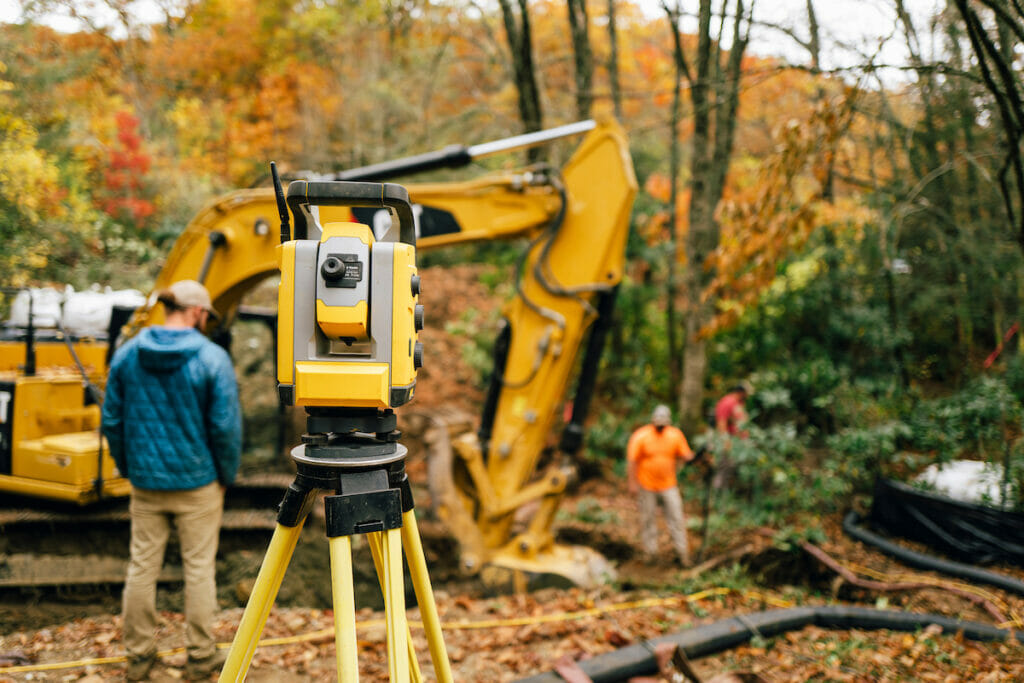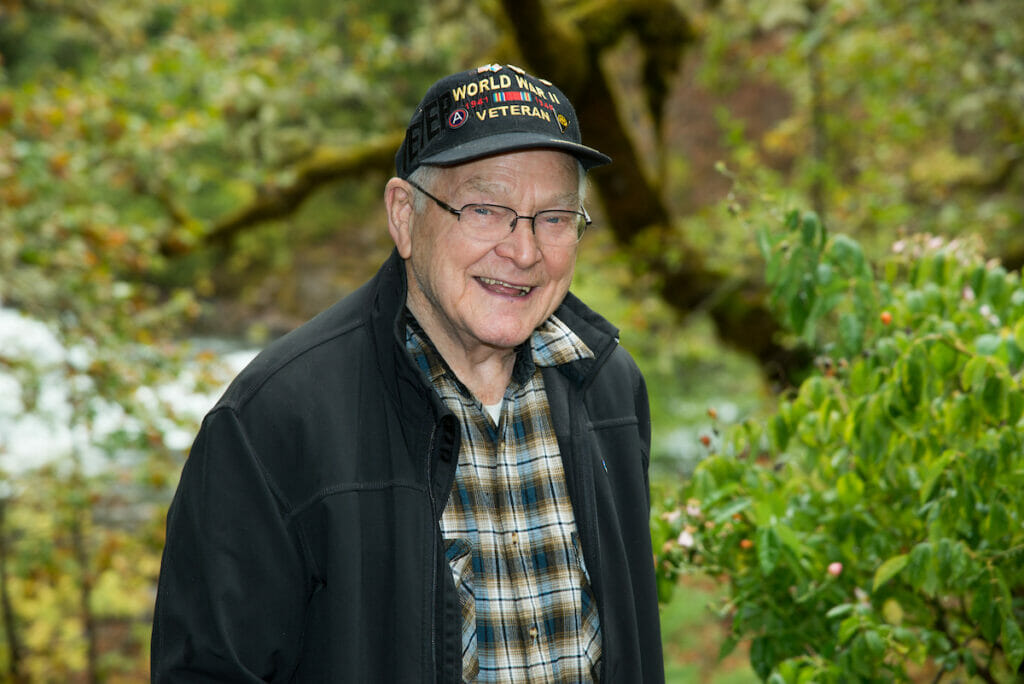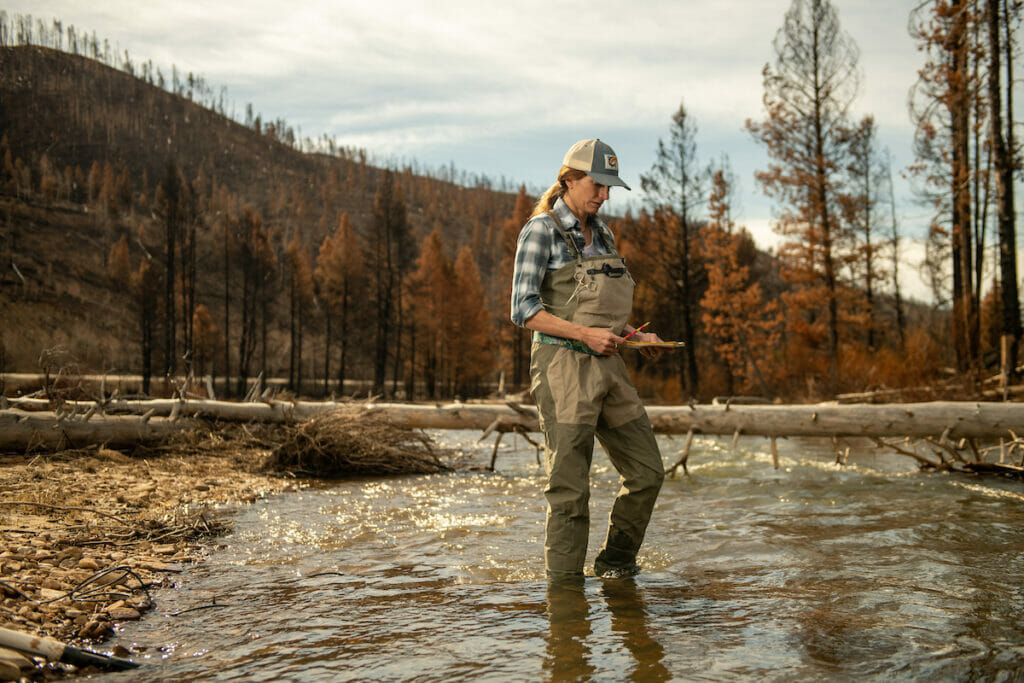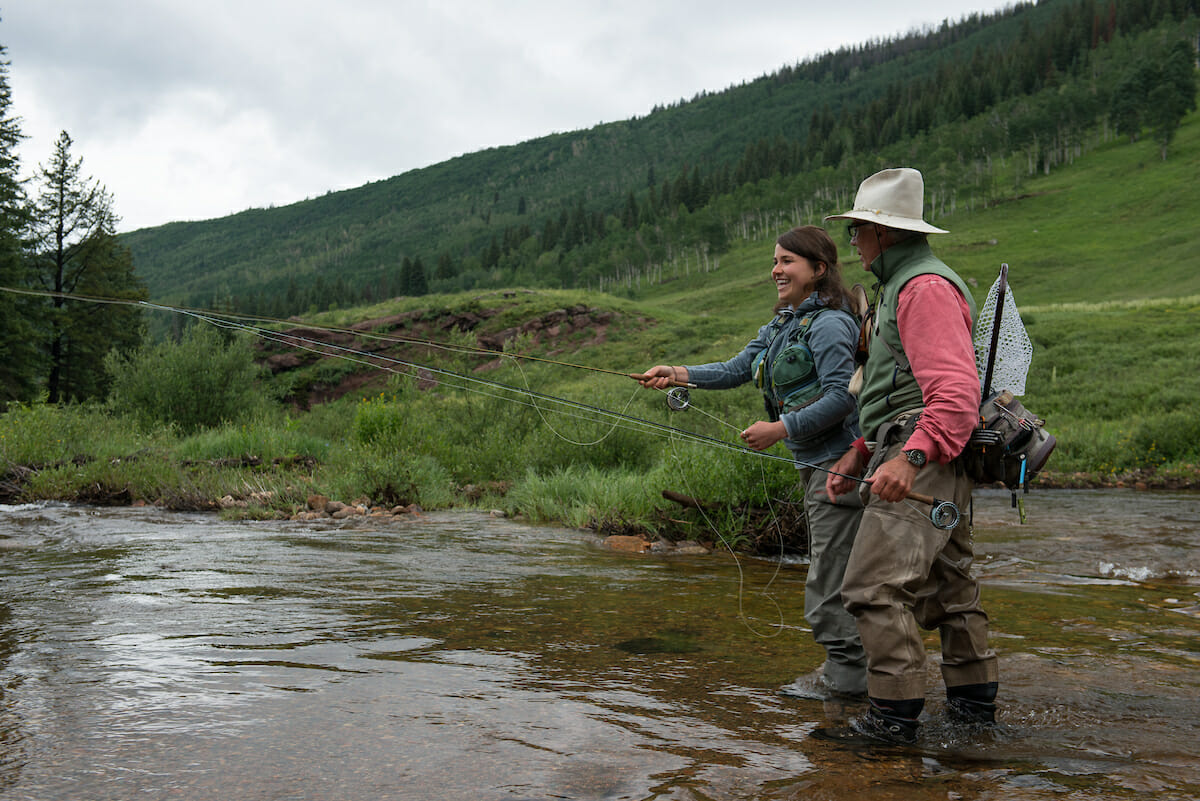I have to admit that I sometimes cringe at the notion of anointing fly-fishing “celebrities,” and especially “heroes.”
Fly fishing is, after all, a very niche realm. It’s kind of like honoring the world’s best bowling pin jugglers, or hot-air balloon pilots. Sure, there’s always a difference between good and great, but to be honest, that is a pretty darn subjective deal. And at the end of the day, what does the ability to stick a tiny feathered hook into a fish with a brain the size of a small nut really amount to? Celebrity? Hero? C’mon…
Now, when it comes to writing, or painting, or some other art applied to fly fishing—and most certainly conservation—well, that’s a different story altogether.
I love everything Tom Rosenbauer does. I joke with him that he taught me to fish, which isn’t far from the truth, given all that he’s written. We’ve fished together in many amazing places, and I still learn from him every time we go.
By a stroke of fate, I get to edit John Gierach’s columns for TROUT magazine. Between us, I don’t wordsmith much at all, other than to strike an occasional F-bomb, which may show up in his books, but I have to sort those out before they appear in our PG-rated magazine. He and I meet for lunches now and then. We talk about the writing craft, which is immensely rewarding.

Bob White creates the art for Gierach’s TROUT columns. I’ve known him for years, and I just recently bought and got to hang on my wall an original painting from one of the truly best artists the outdoor realm has ever known.
I work for TU CEO Chris Wood, and love him like a brother. How could I not? He’s taken TU from a respectable niche conservation organization to a tour-de-force that plows nearly $80 million into conservation (making fishing better) every year. He’s not a highly-visible type, but if you want to talk about people who have legitimately influenced trout and fly fishing, Wood is in his own league. Not putting Wood in the top 10 (at least) most influential people in the history of fly fishing is a complete whiff.
But it isn’t always about notoriety, is it?
My friend Pete Cardinal, who is in his own right one of the best guides in America and certainly the dean of the Missouri River in Montana, once told me: “There is another level to this whole sport that goes way beyond what most people can imagine. There are a lot of people who get wrapped up in the fly-fishing industry, trying to get good enough to be known as an expert. There are some who take it a bit further, and try to make a buck or two off it, like guides or outfitters.
“But then there are people out there who go to a final stage. They’re so good, they can teach themselves. They’re so confident, they don’t care if other people think they’re experts. And they care so much about the river and preserving what’s here, they don’t think of exploiting it for money.”
As he said that, he nodded toward a gray-haired man walking along the bank of the Missouri River. “For all I know, he could be one,” Pete said. “They’re around. You just don’t know many.”

I’ve kept those words close to heart for many years now, and they’ve helped me define what I now think of as a “hero” in this sport of fly fishing.
A hero is the grandfather or grandmother, who teaches a grandson or granddaughter to fish and respect the river. A hero is the woman angler who sheds the stereotypes, and just gets after it, because she loves fishing. A hero is the father-in-law or mother-in-law who embraces and encourages the new addition to the family (while encouraging them to fish). A hero is the person of color, who feels uncomfortable sometimes, but is willing to talk about it, and fish on. A hero is someone who knows jack-squat about fly fishing, but respects the outdoors so darn much, they just want to try. A hero is someone who plants a tree along the riverbank, not because they expect to someday catch a fish in the shadow of that tree, rather, because they know a fish can escape being caught by swimming under the shadow of that tree.

Most of all, a true fly-fishing hero is a person who will embrace and encourage any of the types mentioned above. Because that’s how this sport will endure. That’s how the wild places will be cared for. And that’s what’s ultimately heroic.



